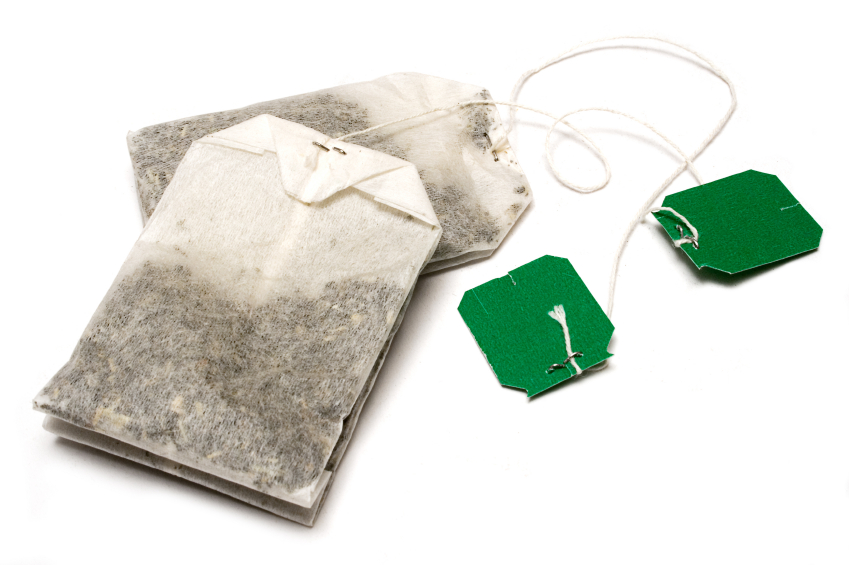Archaeologists discover world's oldest tea buried with Chinese emperor

A free daily email with the biggest news stories of the day – and the best features from TheWeek.com
You are now subscribed
Your newsletter sign-up was successful
There's now evidence that Chinese royals have been sipping on tea since the middle of the second century. Archaeologists' recent excavation of the tomb of Han Dynasty Emperor Jing Di, who died in 141 BC, has turned up what archaeologists say is the world's oldest known tea. Up until this discovery, the only evidence of tea's existence in China that long ago was a single ancient text that claimed China was exporting tea leaves to Tibet.
Archaeologists found the ancient tea leaves buried in a wooden box with the emperor in his tomb, presumably so he could use them in the next life. Though the site, located in what is now modern-day Xian, was previously excavated in the 1990s, a previous search had not turned up the tea leaves.
The use of mass spectrometry by researchers from the Chinese Academy of Sciences has since confirmed that the leaves are, indeed, tea — but not your average tea. The Independent reports that the tea found is believed to be of "the finest quality" because it contains only tea buds and not "ordinary tea leaves."
The Week
Escape your echo chamber. Get the facts behind the news, plus analysis from multiple perspectives.

Sign up for The Week's Free Newsletters
From our morning news briefing to a weekly Good News Newsletter, get the best of The Week delivered directly to your inbox.
From our morning news briefing to a weekly Good News Newsletter, get the best of The Week delivered directly to your inbox.
"The discovery shows how modern science can reveal important previously unknown details about ancient Chinese culture," Dorian Fuller, Director of the International Centre for Chinese Heritage and Archaeology in London, said. "The identification of the tea found in the emperor's tomb complex gives us a rare glimpse into very ancient traditions which shed light on the origins of one of the world's favorite beverages."
A free daily email with the biggest news stories of the day – and the best features from TheWeek.com
-
 Will increasing tensions with Iran boil over into war?
Will increasing tensions with Iran boil over into war?Today’s Big Question President Donald Trump has recently been threatening the country
-
 Corruption: The spy sheikh and the president
Corruption: The spy sheikh and the presidentFeature Trump is at the center of another scandal
-
 Putin’s shadow war
Putin’s shadow warFeature The Kremlin is waging a campaign of sabotage and subversion against Ukraine’s allies in the West
-
 Rubio boosts Orbán ahead of Hungary election
Rubio boosts Orbán ahead of Hungary electionSpeed Read Far-right nationalist Prime Minister Viktor Orbán is facing a tough re-election fight after many years in power
-
 Key Bangladesh election returns old guard to power
Key Bangladesh election returns old guard to powerSpeed Read The Bangladesh Nationalist Party claimed a decisive victory
-
 Epstein files topple law CEO, roil UK government
Epstein files topple law CEO, roil UK governmentSpeed Read Peter Mandelson, Britain’s former ambassador to the US, is caught up in the scandal
-
 Iran and US prepare to meet after skirmishes
Iran and US prepare to meet after skirmishesSpeed Read The incident comes amid heightened tensions in the Middle East
-
 EU and India clinch trade pact amid US tariff war
EU and India clinch trade pact amid US tariff warSpeed Read The agreement will slash tariffs on most goods over the next decade
-
 Israel retrieves final hostage’s body from Gaza
Israel retrieves final hostage’s body from GazaSpeed Read The 24-year-old police officer was killed during the initial Hamas attack
-
 China’s Xi targets top general in growing purge
China’s Xi targets top general in growing purgeSpeed Read Zhang Youxia is being investigated over ‘grave violations’ of the law
-
 Panama and Canada are negotiating over a crucial copper mine
Panama and Canada are negotiating over a crucial copper mineIn the Spotlight Panama is set to make a final decision on the mine this summer